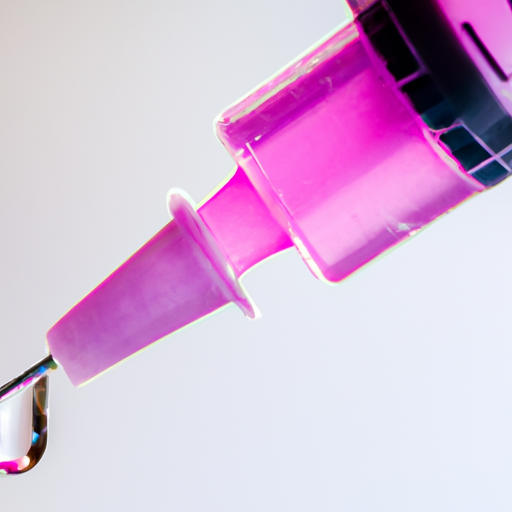My Experience with Chicken Pox and Why Vaccines are Crucial
Growing up, I vividly remember the unbearable itch and discomfort caused by developing red spots all over my body. I had contracted chicken pox, a highly contagious viral infection that spreads through direct contact, respiratory droplets or contaminated surfaces. While the infection typically clears up within a few weeks, it can have serious implications for individuals with weakened immune systems or pregnant women.
That’s why vaccines are crucial for protecting yourself and others from this virus. The chicken pox vaccine is a safe and effective way to prevent contracting the virus, and it comes with numerous benefits. By getting vaccinated, you can help prevent the spread of the virus to vulnerable populations, including those with weakened immune systems or pregnant women.
The vaccine works by introducing a weakened form of the virus to our immune system, which helps generate a protective immune response without causing an actual infection. This process results in active immunity, which empowers our immune system to fight off the virus if exposed in the future. As a result, getting vaccinated can significantly decrease the likelihood of developing symptoms and complications associated with chicken pox.
There are many benefits of getting vaccinated against chicken pox. First and foremost, it protects your health by preventing the spread of infection and its potential complications. Moreover, it is a cost-effective way of avoiding medical expenses associated with treatment and loss of wages due to missing work. Additionally, it can help reduce the burden on our healthcare system by decreasing the number of individuals seeking medical care for chicken pox.

Both children and adults should get vaccinated against chicken pox. This is especially important for individuals who have not previously had chicken pox or have not received the vaccine. While the vaccine is generally safe, like any medical intervention, it can have side effects. Common side effects include redness and soreness at the injection site, mild fever, and fatigue. However, severe side effects are rare, and the benefits of getting vaccinated far outweigh the risks.
In conclusion, getting vaccinated is a crucial step in preventing the spread of chicken pox and protecting the health of yourself and others. For more information on chicken pox, visit https://brightsidebeauty.com/overview-of-chicken-pox-what-you-need-to-know/.
How the Vaccine Works
Okay, let’s break it down. Vaccines help your body fight off infections by building immunity to a specific disease. Let’s talk about the two types of immunity: active and passive. Active immunity is when your body creates its own protection against an illness. This happens when you get vaccinated – your body is exposed to a tiny bit of the virus that causes chickenpox (in this case) and creates antibodies to fight it off. Passive immunity is when you receive antibodies from someone else. For example, a baby gets passive immunity from their mother’s breastmilk. But let’s stick to active immunity here. Once your body has created those antibodies, it knows how to fight off the virus if it tries to infect you in the future. So what exactly does the chickenpox vaccine protect against? Well, it protects against the varicella-zoster virus (VZV) that causes chickenpox. It’s a live-attenuated vaccine, which means it uses a weakened form of the virus to stimulate an immune response. The weakened virus is safe and won’t cause chickenpox – but it’s still enough for your body to create those antibodies we talked about earlier. It’s important to note that the chickenpox vaccine doesn’t just protect against chickenpox – it also protects against shingles. Shingles is a painful rash that occurs in people who have had chickenpox before. After the initial chickenpox infection, the virus lies dormant in your nerve cells. If it becomes reactivated later in life, it can cause shingles. But getting vaccinated can reduce your risk of getting shingles later on. So, in short: the chickenpox vaccine works by stimulating your body’s immune response to the varicella-zoster virus, which causes chickenpox and can later cause shingles. By getting vaccinated, you’re building up your body’s defenses against these illnesses.
Why Vaccination Is Beneficial
Getting vaccinated is a smart decision for anyone. It keeps you healthy and also helps your community. The benefits of getting vaccinated against chickenpox are numerous:
Firstly, it protects against the disease. Vaccines work by imitating the effects of an infection, but without causing the illness. This primes your immune system, allowing it to fight off the disease if and when you are exposed to it.
Secondly, vaccinated individuals are less likely to pass on the infection to others. This is particularly important for people with weaker immune systems who can’t receive the vaccine, or those who have not yet had a chance to get vaccinated.
Thirdly, it saves money. Staying healthy means less time and money spent on doctor’s visits, medication and missed days at school or work. It also reduces the risk of serious complications from the disease, which can be costly to treat.
All of these benefits make getting a chickenpox vaccine a no-brainer for me. I don’t see any reason to put my health, or the health of those around me, at risk, especially when it’s so easy to prevent. I encourage everyone to talk to their doctor about getting vaccinated and stay protected!
Who Should Get the Chicken Pox Vaccine?
As someone who has dealt with the effects of chicken pox, I highly recommend getting vaccinated. The vaccine is safe, effective, and can protect you from serious illness. But who specifically should get vaccinated?
Children
The CDC recommends that children receive two doses of the chicken pox vaccine. The first dose should be given at 12-15 months of age, while the second dose should be given at 4-6 years of age. Vaccinating children not only protects them, but also helps prevent the spread of the virus to others who may not be able to receive the vaccine themselves, such as infants and those with weakened immune systems.
Adults
If you have not had chicken pox before, it is recommended that you get vaccinated as an adult. This is especially important for women who are pregnant or planning to become pregnant, as chicken pox can lead to complications for the developing fetus. Additionally, adults who have never had chicken pox may experience more severe symptoms compared to children. If you are unsure whether you have had chicken pox before, talk to your healthcare provider about getting a blood test to determine your immunity.
Expert Advice
If you are unsure whether you or your child should get vaccinated, it is important to speak with a healthcare provider. They can provide personalized recommendations based on your medical history and potential risk factors. Additionally, those with severe allergies to any component of the vaccine, as well as those with weakened immune systems, may not be able to receive the chicken pox vaccine. Always consult with a healthcare professional to determine the best course of action for you or your loved ones.
Overall, the chicken pox vaccine is an important tool in preventing the spread of the virus and protecting yourself from serious illness. Talk to your healthcare provider to determine if getting vaccinated is right for you or your family.
Vaccine Side Effects: My Experience with Chicken Pox Vaccine
As someone who has received the Chicken Pox vaccine, I want to share my experience with the possible side effects. It’s important to note, however, that everyone’s response to the vaccine may differ.
Common Side Effects of Chicken Pox Vaccine
After receiving the vaccine, it’s common to experience mild side effects such as soreness, redness or swelling at the injection site, fever, and mild rash. These side effects usually occur within the first 24 hours and can last up to a week. However, these side effects are generally mild and go away on their own.
Severe Side Effects of Chicken Pox Vaccine
Although rare, there have been reports of severe side effects. These include allergic reactions, seizures, and brain damage. It’s important to speak to your healthcare provider if you experience any unusual side effects after receiving the vaccine.
Expert Advice on Chicken Pox Vaccine Side Effects
According to the Centers for Disease Control and Prevention (CDC), the benefits of the Chicken Pox vaccine far outweigh the risks. In fact, the CDC claims that the vaccine is safe and effective. However, some people may not be able to receive the vaccine due to medical conditions or other factors. It’s important to discuss your medical history with your healthcare provider to determine if the vaccine is right for you.
In conclusion, it’s important to be aware of the possible side effects of any vaccine. While the Chicken Pox vaccine is generally safe and effective, it’s important to speak to your healthcare provider about any concerns you may have. Remember, the best way to prevent Chicken Pox is by getting vaccinated.
Conclusion?! Vaccines: So Hot Right Now!
Wow, who would’ve thought this vaccine business would be such a big deal, am I right? But seriously, let’s recap why getting vaccinated against chickenpox is important. First off, chickenpox is a highly contagious disease caused by the varicella-zoster virus. It’s not usually fatal, but it can lead to serious complications in some cases. By getting vaccinated, you can protect not only yourself, but also the people around you who may be more vulnerable to the disease, such as infants, pregnant women, and people with weakened immune systems. The vaccine works by stimulating your body’s immune system to produce antibodies that can fight off the virus. This is known as active immunity, which means that your body is actively involved in the process of fighting the disease. This is in contrast to passive immunity, which is when you receive pre-made antibodies from someone else, such as through breast milk or a blood transfusion. The chickenpox vaccine can protect against both chickenpox and shingles, a painful condition caused by the reactivation of the varicella-zoster virus later in life. By getting vaccinated, you can reduce your risk of developing these illnesses and the complications that can come with them. There are also numerous benefits to getting vaccinated. For one thing, it can save you a lot of money in medical expenses and lost productivity. People who get sick with chickenpox may need to take time off work or school, which can be disruptive and expensive. Additionally, getting vaccinated can prevent the spread of disease, which can have a positive impact on public health and reduce the burden on healthcare systems. In terms of who should get vaccinated, the Centers for Disease Control and Prevention (CDC) recommends that all children receive two doses of the chickenpox vaccine, typically given at ages 12-15 months and 4-6 years. Adults who have never had chickenpox or the vaccine should also consider getting vaccinated. Like any medication, the chickenpox vaccine can cause side effects. However, the vast majority of people who receive the vaccine experience only mild reactions like soreness at the injection site or a low-grade fever. Serious side effects are rare. Overall, the chickenpox vaccine is a safe and effective way to protect yourself and those around you from a highly contagious and sometimes serious disease. Talk to your healthcare provider about whether the vaccine is right for you.
